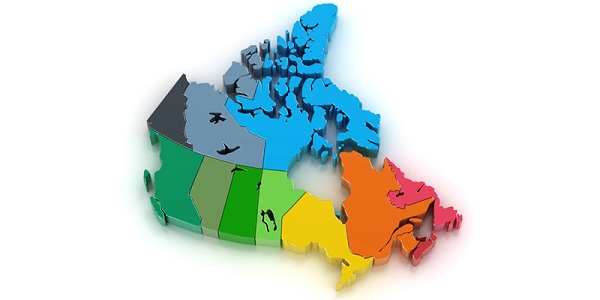News
Lacombe County: Fire Permit Season Begins March 1 – Have you got yours?

February 26, 2019
Fire Permit Season Begins March 1: Have you got yours?
Lacombe County reminds people that permit requests are free and easy to submit online, through the “myLacombeCounty” app and in person.
(Lacombe, Alberta, February 26, 2019) Lacombe County reminds ratepayers that fire permit season starts on March 1, 2019. In 2017, permit season was moved up a month – starting March 1 rather than April 1 – in response to changing environmental conditions, including drier spring conditions.
“This winter has not brought a lot of snow to Lacombe County and as a result, spring conditions will likely be drier. This was evident in 2018 as well, with an early fire ban put in place by the end of last April,” said Drayton Bussiere, Lacombe County Fire Chief. “Residents are also encouraged to check on any controlled burns performed outside of permit season, as larger burns can smolder through the winter and reignite as it warms up. By complying with the fire permit process and by using safe burning practices, all Lacombe County residents can help us keep our County safe throughout the season.”
Burning without a fire permit can result in a hefty fine.
Under Lacombe County’s Fire Protection Policy, anyone found burning without a permit will be required to pay for the fire department response fees. A flat rate of $300 will be charged for responses to a fire when a person is in contravention of the Forest and Prairie Protection Act for failure to have a fire permit or any other provision of the Act and fire suppression is not required.
“It’s about public safety and burning responsibly,” said Bussiere. “Fire permits are free of charge and easy to obtain, yet we continue to have situations where people don’t take out a permit and can be charged under the bylaw, the intent here is not to generate revenue but to ensure the safety of all Lacombe County residents and their neighbours.”
The past several years have seen many producers brush lands and burn the brush during the winter months. It is very important to remember to check these piles as they can smolder for many months, and can be rekindled by wind. Combine this with dry spring conditions and the resulting fires can be disastrous.
Fires that are started by rekindled brush piles are your responsibility and you can also be charged for the fire response. Should a Fire Department respond to a fire for which a permit has not been issued, or if a permit has been issued and the permit holder contravenes any of the conditions of the permit, the property owner will be assessed costs at the following rates:
• fire truck – $500 per hour
• water truck – $300 per hour
• rapid response unit/mini pumper – $300 per hour
• equipment van – $300 per hour
• equipment other than fire apparatus – Lacombe County cost
• personnel other than fire department members – Lacombe County cost
Beginning on March 1, 2019, online fire permits can be submitted from the Lacombe County website homepage (www.lacombecounty.com), and through the “my Lacombe County” app (Apple users). People are also able to request permits in person at the Lacombe County Office, or by calling 403-782-8959.
Frequently Asked Questions
When do you require a fire permit?
The Forest and Prairie Protection Act prohibits the lighting of an outdoor fire, excluding an attended outdoor camp fire which has been set for cooking or warming purposes, between March 1 and October 31 each year, on land in a permit area, unless the person is a holder of a subsisting fire permit.
The Forest and Prairie Protection Act states that no person shall:
- a) light an outdoor fire without first taking sufficient precautions to ensure that the fire can be kept under control at all times, or
- b) light an outdoor fire when weather conditions are conducive to a fire readily escaping out of control, or
- c) fail to take reasonable steps to control a fire for the purpose of preventing it from spreading unto land otherthan his own, or
- d) deposit, discard or leave any burning matter or substance in a place where it might ignite other matter andresult in a fire.
How can you obtain a permit?
Beginning on March 1, online fire permits can be submitted from the Lacombe County website homepage (www.lacombecounty.com) and from the new “my Lacombe County” app. Permits can also be requested in person at the Lacombe County Office, or by calling 403-782-8959.
What you need to know
In Lacombe County, fire permits are required during the fire season, which starts March 1st and ends October 31st each year, but can be extended if the risk or danger of wildfire exists.
Before lighting any fire, a permit holder must take precautions to ensure that the fire is kept under control at all times. The following rules apply to all permits issued in Lacombe County:
- A fire permit is valid only for the period that it is issued for.
- Upon issuing a permit, the County may specify any special fire control condition that, in their discretion, isimportant to the safety of the county residents.
- The fire must be set at the time and place indicated on the permit.
- The number of fires set at one time and minimum equipment needed may be specified on the permit.
- Anyone who sets a fire under the authority of a permit must:
o Have a the permit at the fire site
o Produce and show the permit to a County employee on request
o Keep the fire under control, and
o Extinguish the fire before expiration, or upon cancellation of the permit, or obtain a renewal.
What can you burn?
Burnable debris includes: Prohibited debris includes:
- Brush and fallen trees
- Used power and telephone poles that do notcontain preservatives
- Wood or wood products not containingpreservatives
- Solid waste from tree harvesting
- Straw, stubble, grass, weeds, leaves, and treeprunings
- Solid waste from post and pole operations thatdoes not contain wood preservatives
- Animal manure
- Pathological waste (waste from human healthcentres)
- Wood or wood products containing woodpreservatives
- Waste materials from construction sites
- Rubber, including tires
- Plastic, including baler twine
- Oil
- Containers that held pesticides or any otherchemicals
- Plastic or rubber coated materials, includingcopper wire.
Special provisions for stubble burning
A Stubble Burning Permit is required throughout the year prior to burning the stubble or swath of any crop. A field inspection will be required prior to the issuance of a permit. Phone the Agricultural Fieldman at 782-8959 a few days in advance for inspection arrangements. Stubble Burning Permits may only be obtained at the County office from the Manager of Environmental and Protective Services or the Agricultural Fieldman
Remember to recycle
Many items that you may consider burning can be recycled: Plastics, paper, cardboard and metal materials, used oil, tires and beverage containers, along with many other items. Call the Recycle Info Line at 1-800-463-8320 for local information or visit the Lacombe Regional Waste Services Commission website (www.lrwsc.ca).
Business
Broken ‘equalization’ program bad for all provinces

From the Fraser Institute
By Alex Whalen and Tegan Hill
Back in the summer at a meeting in Halifax, several provincial premiers discussed a lawsuit meant to force the federal government to make changes to Canada’s equalization program. The suit—filed by Newfoundland and Labrador and backed by British Columbia, Saskatchewan and Alberta—effectively argues that the current formula isn’t fair. But while the question of “fairness” can be subjective, its clear the equalization program is broken.
In theory, the program equalizes the ability of provinces to deliver reasonably comparable services at a reasonably comparable level of taxation. Any province’s ability to pay is based on its “fiscal capacity”—that is, its ability to raise revenue.
This year, equalization payments will total a projected $25.3 billion with all provinces except B.C., Alberta and Saskatchewan to receive some money. Whether due to higher incomes, higher employment or other factors, these three provinces have a greater ability to collect government revenue so they will not receive equalization.
However, contrary to the intent of the program, as recently as 2021, equalization program costs increased despite a decline in the fiscal capacity of oil-producing provinces such as Alberta, Saskatchewan, and Newfoundland and Labrador. In other words, the fiscal capacity gap among provinces was shrinking, yet recipient provinces still received a larger equalization payment.
Why? Because a “fixed-growth rule,” introduced by the Harper government in 2009, ensures that payments grow roughly in line with the economy—even if the gap between richer and poorer provinces shrinks. The result? Total equalization payments (before adjusting for inflation) increased by 19 per cent between 2015/16 and 2020/21 despite the gap in fiscal capacities between provinces shrinking during this time.
Moreover, the structure of the equalization program is also causing problems, even for recipient provinces, because it generates strong disincentives to natural resource development and the resulting economic growth because the program “claws back” equalization dollars when provinces raise revenue from natural resource development. Despite some changes to reduce this problem, one study estimated that a recipient province wishing to increase its natural resource revenues by a modest 10 per cent could face up to a 97 per cent claw back in equalization payments.
Put simply, provinces that generally do not receive equalization such as Alberta, B.C. and Saskatchewan have been punished for developing their resources, whereas recipient provinces such as Quebec and in the Maritimes have been rewarded for not developing theirs.
Finally, the current program design also encourages recipient provinces to maintain high personal and business income tax rates. While higher tax rates can reduce the incentive to work, invest and be productive, they also raise the national standard average tax rate, which is used in the equalization allocation formula. Therefore, provinces are incentivized to maintain high and economically damaging tax rates to maximize equalization payments.
Unless premiers push for reforms that will improve economic incentives and contain program costs, all provinces—recipient and non-recipient—will suffer the consequences.
Authors:
National
Liberals, NDP admit closed-door meetings took place in attempt to delay Canada’s next election

From LifeSiteNews
Pushing back the date would preserve the pensions of some of the MPs who could be voted out of office in October 2025.
Aides to the cabinet of Prime Minister Justin Trudeau confirmed that MPs from the Liberal and New Democratic Party (NDP) did indeed hold closed-door “briefings” to rewrite Canada’s elections laws so that they could push back the date of the next election.
The closed-door talks between the NDP and Liberals confirmed the aides included a revision that would guarantee some of its 28 MPs, including three of Trudeau’s cabinet members, would get a pension.
Allen Sutherland, who serves as the assistant cabinet secretary, testified before the House of Commons affairs committee that the changes to the Elections Act were discussed in the meetings.
“We attended a meeting where the substance of that proposal was discussed,” he said, adding that his “understanding is the briefing was primarily oral.”
According to Sutherland, as reported by Blacklock’s Reporter, it was only NDP and Liberal MPs who attended the secret meetings regarding changes to Canada’s Elections Act via Bill C-65, An Act to Amend the Canada Elections Act before the bill was introduced in March.
As reported by LifeSiteNews before, the Liberals were hoping to delay the 2025 federal election by a few days in what many see as a stunt to secure pensions for MPs who are projected to lose their seats. Approximately 80 MPs would qualify for pensions should they sit as MPs until at least October 27, 2025, which is the newly proposed election date. The election date is currently set for October 20, 2025.
Sutherland noted when asked by Conservative MP Luc Berthold that he recalled little from the meetings, but he did confirm he attended “two meetings of that kind.”
“Didn’t you find it unusual that a discussion about amending the Elections Act included only two political parties and excluded the others?” Berthold asked.
Sutherland responded, “It’s important to understand what my role was in those meetings which was simply to provide background information.”
Berthold then asked, “You nevertheless suggested amendments to the legislation including a change of dates?”
“My role was to provide information,” replied Sutherland, who added he could not provide the exact dates of the meetings.
MPs must serve at least six years to qualify for a pension that pays $77,900 a year. Should an election be called today, many MPs would fall short of reaching the six years, hence Bill C-65 was introduced by the Liberals and NDP.
The Liberals have claimed that pushing back the next election date is not over pensions but due to “trying to observe religious holidays,” as noted by Liberal MP Mark Gerretsen.
“Conservatives voted against this bill,” Berthold said, as they are “confident of winning re-election. We don’t need this change.”
Trudeau’s popularity is at a all-time low, but he has refused to step down as PM, call an early election, or even step aside as Liberal Party leader.
As for the amendments to elections laws, they come after months of polling in favour of the Conservative Party under the leadership of Pierre Poilievre.
A recent poll found that 70 percent of Canadians believe the country is “broken” as Trudeau focuses on less critical issues. Similarly, in January, most Canadians reported that they are worse off financially since Trudeau took office.
Additionally, a January poll showed that 46 percent of Canadians expressed a desire for the federal election to take place sooner rather than the latest mandated date in the fall of 2025.
-

 ESG2 days ago
ESG2 days agoCan’t afford Rent? Groceries for your kids? Trudeau says suck it up and pay the tax!
-

 John Stossel2 days ago
John Stossel2 days agoGreen Energy Needs Minerals, Yet America Blocks New Mines
-

 Daily Caller2 days ago
Daily Caller2 days agoLos Angeles Passes ‘Sanctuary City’ Ordinance In Wake Of Trump’s Deportation Plan
-

 Alberta2 days ago
Alberta2 days agoProvince considering new Red Deer River reservoir east of Red Deer
-

 Addictions2 days ago
Addictions2 days agoBC Addictions Expert Questions Ties Between Safer Supply Advocates and For-Profit Companies
-

 Aristotle Foundation2 days ago
Aristotle Foundation2 days agoToronto cancels history, again: The irony and injustice of renaming Yonge-Dundas Square to Sankofa Square
-

 conflict1 day ago
conflict1 day agoUS and UK authorize missile strikes into Russia, but are we really in danger of World War III?
-

 armed forces1 day ago
armed forces1 day agoJudge dismisses Canadian military personnel’s lawsuit against COVID shot mandate






